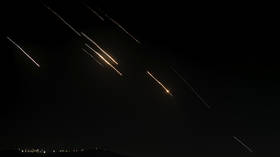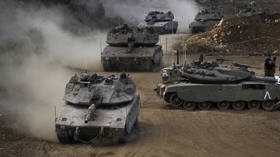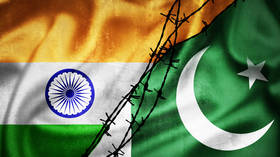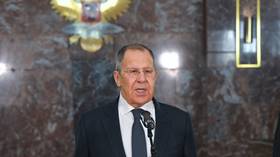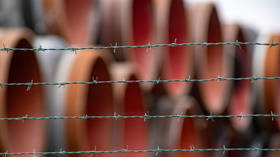Has Iran just tested a nuclear weapon?
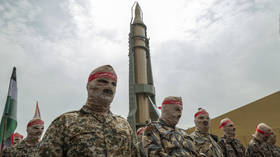
In the late evening of October 5, seismic tremors of a magnitude of 4.6 on the Richter Scale were detected in Iran’s Semnan region. Although they could be felt even in the capital Tehran, over a hundred kilometers away from the epicenter, as earthquakes go this was not a major event: It was not terribly strong and caused no casualties. And yet it has attracted global attention. The reason is that we are not sure that it really was an earthquake.
Since the tremors shook the Iranian desert, speculation that this was, in reality, an underground nuclear test has not been dying down, in some traditional media and in social media everywhere. In Iran itself, according to the Tehran Times – an outward-facing English-language publication – ”seismologists and […] authorities” have denied a nuclear test. The newspaper added that “CIA Director William Burns also said there is no evidence that Iran has decided to build a nuclear weapon.” Considering that, from long and bitter experience, Iranians do not generally consider the CIA a source of truth, that is an intriguing, maybe tongue-in-check addition.
It is not hard to imagine plausible reasons why the leadership in Tehran could have an interest in staging a test that it knows leaves detectable traces while at the same time it’s officially denying that it has done so: it would, in essence, serve to warn enemies while allowing for a degree of politically flexible deniability. It would also, perhaps, create some strategic ambiguity – that is, uncertainty among opponents – if not about the event itself, then about what exactly the Iranian leadership is intending to do with it.
Yet it is at least equally realistic to assume that there really was no test. Those discussions of the Semnan tremors that are publicly available seem inconclusive to the non-expert at least, turning on points such as the exact nature of the seismic wave and the location of the epicenter. For now, the only certain conclusion seems to be that we don’t know: It may have been just an ordinary earthquake, but a nuclear test cannot be ruled out at this point.
Let’s take a step back: Instead of assessing arguments for one or the other version of what exactly happened at Semnan in Iran on October 5, let’s ask two simple questions: Why is it so important and what would it mean if a nuclear test did really occur?
In some regards, it is obvious why the tremors have reverberated globally: Iran is already embroiled in a de facto war with Israel that is on the verge of escalating further, from increasingly destructive missile attacks into an even larger regional and possibly global war. Beyond the longstanding hostility between the two countries, this escalation is underway for two reasons: First, Israel has already completed a year of committing genocide against the Palestinians and there is no end in sight, while it has also been assaulting multiple countries around it with terror attacks, indiscriminate bombings and, now in Lebanon, also a land invasion. Second, the West has sided with Israel. In a hypothetical world, one in which the West would not have trampled all over international law and elementary ethics and, instead, would have stopped Israel, the current escalation could not have occurred.
For these two reasons – Israel’s complete descent into mass killings and all-round aggression and the West’s helping it along – Iran’s regional “Axis of Resistance” has become the key, indeed the one and only international actor that is in the way of the Zionist regime. Given the way Western mainstream media propaganda vilifies this “axis” as “rogue” and “terrorist,” it is ironic that its members are the only ones at least trying to implement the UN 1948 Genocide Convention against the Israeli perpetrators, thus obeying a fundamental obligation of post-World War II international law. The true, monstrous rogue actors are the West and Israel.
Without the “Axis of Resistance” under Iran’s loose hegemony, the Palestinian resistance would be entirely alone. For Israel, this means that destroying or at least neutralizing Iran is the greatest possible strategic prize. Without Tehran, the “axis” would not simply disappear. For that, its various elements – for instance, Lebanon’s Hezbollah and Yemen’s Ansar Allah movement (‘Houthis’) are too autonomous, not mere proxies. But there is no doubt that they would be gravely, perhaps fatally weakened.
Against this background, Iran’s military capabilities are a crucial factor. While Tehran has a much less modern air force than Israel’s, Iran’s missile forces are formidable. Despite claims to the contrary, the recent, still-restrained attack of 180 projectiles has shown that Iran can overwhelm Israeli air defenses and the US assistance these get. If it ever were to launch an assault really meant to be devastating – by targeting Israel’s economic and political infrastructure – Israel would have to absorb damage as never before in its history. The fact that Israelis have the option of leaving makes this threat all the more powerful: Their country has deliberately sought to make Gaza uninhabitable. As a civilized country, Iran would not resort to the same genocidal cruelty. But it could make it much less comfortable or safe for Israelis to stay in Israel.
And that is where we get back to the question of why it would be so important if a nuclear test really took place in Iran on October 5: On one side, Israel has threatened to target the country’s many nuclear facilities, if not in the next round of strikes then in the one after that. Yet, since the more important ones are deep underground, that is technically difficult, as an American general formerly involved in pertinent planning has just confirmed to the New York Times. But, still, Israel has US support. Even if Washington has mumbled some objections to that particular Israeli insanity, this means very little because the US tends to lie and Israel tends to do what it wants anyhow and then drag the US along, unwillingly or very willingly, as the case may be.
On the other side, Iran has, of course, been developing its own nuclear program. While its leaders insist that it’s entirely non-military, if that were true, they would be idiots neglecting their duty to protect their country. And they are neither idiots nor neglecting their duty.
What adds a wrinkle of complication is that the possibility of Iran crossing the threshold to possessing nuclear weapons has been exaggerated again and again by Western politicians and media with an obvious intention to create a pretext for yet another Western war of aggression in the Middle East. Indeed, the Wall Street Journal has just published another long article in that genre of “Look-how-close-they-are.” For those preferring more theoretical outlets, the prestigious journal Foreign Policy has just bluntly set out the ”case for destroying Iran’s nuclear program now.”
So, whenever you hear – at least in the West – that Tehran is close to having nukes, keep in mind that you may well be looking at war propaganda. And yet, there also is a real possibility of Iran acquiring – or perhaps already having acquired – nuclear bombs. That is why it has been so tempting to interpret the seismic shock in the Semnan region as a well-timed nuclear test. If Iran already has built nuclear weapons, then a test could have been a signal, telling Israel and the West that it is now too late for preempting an Iranian breakthrough because it has already happened. That would imply not only that such an Israeli or Western attack is now futile, but also that it has become much riskier since Iran may already be able to retaliate, even with nuclear weapons.
The scenario outlined above remains speculative as an interpretation of the Semnan seismic tremors on October 5. But what is more important is the fact that even if it has not yet occurred, then it is likely to occur soon. One way or the other, notwithstanding an earlier Iranian religious injunction – fatwa – against weapons of mass destruction often cited in the West, Tehran is likely to become a nuclear-armed power in the near future. In that case, the fatwa will be altered or superseded. If and when that happens, the West and Israel will have only themselves to blame, for three reasons.
First, we have long known that the West uses the foggy notion of “rules” and a “rules-based order” to evade international law and a meaningful role for the United Nations. The rules-based order is a cheap sham for those who prefer that laws do not apply to them. What the Gaza genocide and Israel’s other recent crimes have made unmistakably clear is that the “rules-based order” includes a very special privilege for Israel and the West, namely that of committing crimes against humanity. In such a world, every self-respecting government that takes its elementary duty to defend country and people seriously must think in the-very-worst-case terms. In such a world, in short, you better have nukes.
Secondly, we have not only learned what exactly the “rules-based order” is capable of. We have also learned that the alternative norms and institutions of international law cannot stop the “rules-based” crowd once it has made up its mind: By the findings of the highest court of the UN, the International Court of Justice, also called the World Court, Israel stands as a plausible perpetrator of genocide even now; a full sentencing is likely to follow. Its prime minister and minister of defense have arrest-warrant applications pending at the International Criminal Court. And what is the result? Nothing. Neither Western governments nor Israel have given a damn about the law. Indeed, they are in open contempt and obstructing it shamelessly. Again, in such a world, you better arm yourself as well as you can.
Thirdly, Iran itself has, of course, been through a long-drawn-out attempt to find a compromise with the West and, de facto, Israel. The Joint Comprehensive Plan of Action – aka the Iran Nuclear Deal – was concluded in 2015. Its essence was simple: Tehran would give up on military uses of its nuclear power and, in return, the West would let go of sanctions and generally normalize its relations with Iran. In 2018, the US reneged because Donald Trump – then president, now recklessly hollering about striking Iran’s nuclear facilities – felt like it. The Biden administration then failed to repair the damage and, if anything, made things worse. And neither a future Trump nor a Harris presidency will make them any better.
In sum, in the West’s “rules-based order” the rules include that Israel and the West may commit genocide, and then some; international law and other laws have no countervailing power and have been discredited; and individual negotiations and compromises lead to being cheated.
Responsible leaders in Iran, and in other states, have to conclude that their countries must have nuclear weapons as well as the means to deliver them. And, in the case of Iran, this actually means enough to deter Israel and the US. The latter especially must, in the future, face the possibility – as it does already with North Korea – of Iranian nuclear retaliation on its own homeland if Washington either attacks Iran directly or helps Israel attack it. That is the stark logic of deterrence. It is sad that nothing else remains. But, by their outrageous violence and, literally, lawlessness, the West and Israel have left Iran – and others – no choice but to adopt this harsh logic to the full.
The statements, views and opinions expressed in this column are solely those of the author and do not necessarily represent those of RT.


